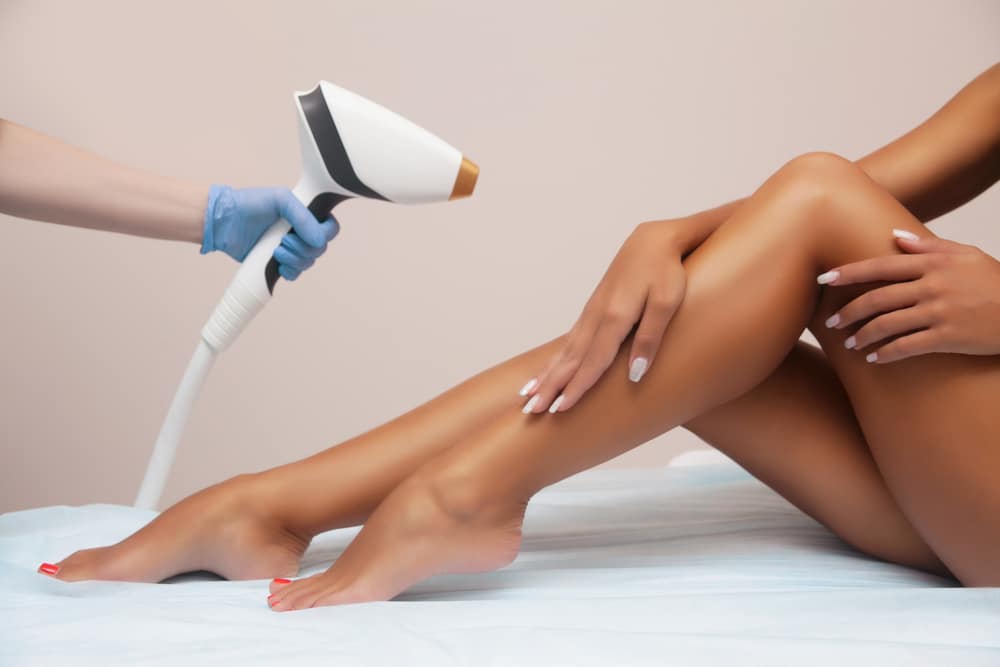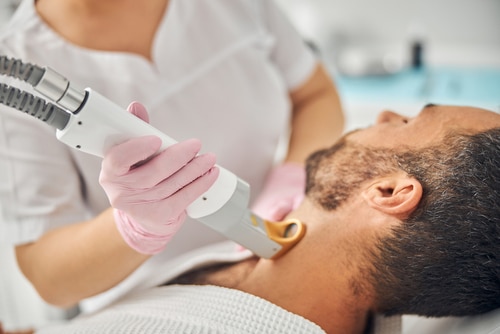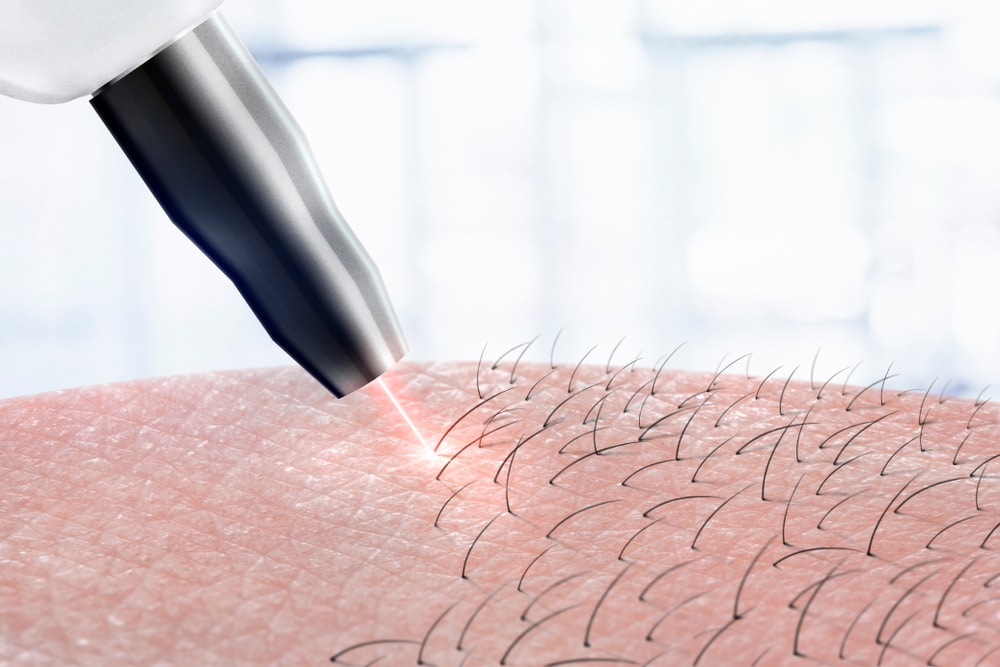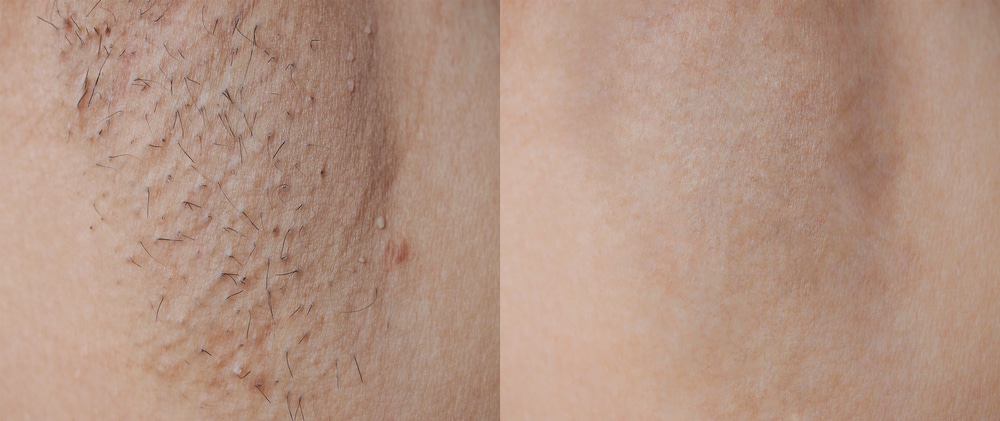Laser hair removal has been a popular choice for those looking to get rid of unwanted body hair permanently. This non-invasive procedure uses highly concentrated light to penetrate hair follicles, damaging them and inhibiting future hair growth. In this comprehensive guide, we’ll discuss the benefits, process, risks, and expectations of laser hair removal and how to prepare for and maintain your smooth skin results.
Benefits of Laser Hair Removal
Laser hair removal offers numerous advantages over traditional hair removal methods such as shaving, waxing, and tweezing. Key benefits include:
Precision
Lasers can selectively target dark, coarse hairs while leaving the surrounding skin undamaged. This precision allows for effective hair removal in various areas of the body, including face, legs, chin, back, arms, underarms, and bikini line.
Speed
Each pulse of the laser takes a fraction of a second and can treat multiple hairs simultaneously. The laser can cover an area approximately the size of a quarter every second, allowing for quick treatment sessions. Small areas such as the upper lip can be treated in under a minute, while larger areas like the back or legs may take up to an hour.
Predictability
Most patients experience permanent hair loss after an average of three to seven treatment sessions. However, individual results may vary based on factors such as hair color, skin type, and the area being treated.
How Laser Hair Removal Works
During the laser hair removal process, a laser emits a light that is absorbed by the pigment (melanin) in the hair follicle. The light energy converts to heat, damaging the hair follicle and inhibiting future hair growth. This procedure typically works best for people with light skin and dark hair, but advancements in laser technology have made it possible for those with darker skin tones and lighter hair colors to benefit from laser hair removal as well.
Preparing for Laser Hair Removal
Laser hair removal is a medical procedure that requires professional training and carries potential risks. It’s essential to thoroughly research and choose a qualified doctor or technician to perform the treatment. Before undergoing laser hair removal, follow these preparation steps:
Limit Plucking, Waxing, and Sun Exposure
Avoid plucking, waxing, and electrolysis for six weeks before treatment, as these methods temporarily remove the hair roots targeted by the laser. Also, avoid sun exposure for six weeks before and after treatment to prevent complications and reduce the treatment’s effectiveness.
Attend a Consultation
Schedule a consultation with your chosen professional to discuss your treatment plan, expectations, and potential risks. They will review your medical history, assess your skin and hair type, and provide specific instructions to prepare for the procedure.
What to Expect During Laser Hair Removal
Before Treatment
Before the treatment, the area to be treated will be cleansed, and any hair will be trimmed to a few millimeters above the skin’s surface. A topical numbing gel may be applied to help reduce discomfort during the procedure.
During Treatment
During the treatment, the laser technician will use a hand-held laser instrument to target the melanin in your hair follicles. Protective eyewear is worn by everyone in the room to shield their eyes from the laser beam.
The sensation during the treatment is often described as a warm pinprick or a rubber band snapping against the skin. The treatment’s duration depends on the size of the area being treated, with smaller areas taking less time and larger areas requiring more time.
Post-Treatment Care and Expectations
After the procedure, you may experience redness and swelling, similar to a mild sunburn. Applying a cool compress can help alleviate discomfort. It’s crucial to follow your doctor’s after-care instructions, which may include:
Avoid Direct Sunlight
Protect your treated skin from direct sunlight and avoid using tanning beds for six weeks before and after treatment. Use a broad-spectrum, SPF30 sunscreen daily to shield your skin from harmful UV rays.
Take Care of Your Skin
If you experience skin irritation, use aloe vera or a fragrance-free lotion to keep your skin hydrated. Avoid using scrubs, glycolic acid, and retinol creams two days before and after treatment. It’s also recommended that you wait 1-2 weeks before using fake tan products.
Observe the Results
After laser hair removal, you will likely see a 10% to 25% reduction in hair growth after the first treatment. Hair does not fall out immediately but will shed over a period of days to weeks. Multiple treatment sessions are necessary to achieve optimal results, as hair growth and loss occur in cycles, and laser treatment is most effective on hair follicles in the new growth stage.
Risks and Side Effects
While laser hair removal is generally safe when performed by a qualified professional, some potential side effects and risks should be considered:
Skin Irritation
Temporary discomfort, redness, and swelling are possible after laser hair removal. These signs and symptoms typically disappear within a few hours.
Pigment Changes
Laser hair removal may cause temporary or permanent darkening or lightening of the affected skin. Skin lightening primarily affects those who don’t avoid sun exposure before or after treatment and those with darker skin.
Rare Side Effects
Rarely, laser hair removal can cause blistering, crusting, scarring, or other changes in skin texture. Other unusual side effects include graying or excessive hair growth around treated areas, particularly on darker skin.
It’s crucial to choose a board-certified dermatologist or qualified professional to perform laser hair removal treatments to minimize the risk of side effects.
Maintenance and Long-Term Results
While most patients experience significant hair reduction after multiple treatment sessions, periodic maintenance treatments may be needed for long-term hair reduction. Laser hair removal does not guarantee permanent hair removal, and when hair regrows, it is often finer and lighter in color.
Home Laser Hair Removal Devices
At-home laser hair removal devices have become increasingly popular, offering modest hair reduction. However, there are no large studies comparing the effectiveness of these devices with professional laser hair removal treatments.
The U.S. Food and Drug Administration considers home laser hair removal devices cosmetic, not medical, meaning they don’t undergo the same level of scrutiny as professional devices. Currently, there haven’t been large, long-term studies on the safety and effectiveness of home machines.
If you choose to use a home laser hair removal device, follow the instructions provided to reduce the risk of injury, particularly to the eyes.
Laser Hair Removal Myths and Facts
Several misconceptions surround laser hair removal, leading to confusion and misinformation. Here, we address three common myths and provide the facts behind each.
Myth: Laser Hair Removal Cannot Be Done in the Summer
Fact: Laser hair removal can be performed during the summer, but it’s essential to avoid sun exposure before and after treatment. Properly following pre-treatment and post-treatment care instructions will help ensure a safe and effective procedure.
Myth: Laser Hair Removal Cannot Be Done on Tanned Skin
Fact: Although it’s best to avoid tanning before laser hair removal, advancements in laser technology have made it possible to treat tanned skin safely. However, the laser’s settings may need to be less aggressive, potentially requiring more treatment sessions for optimal results.
Myth: Laser Hair Removal Is Not Safe for All Skin Tones
Fact: While laser hair removal was initially most effective for people with light skin and dark hair, advances in laser technology have made it safe and effective for people with darker skin tones as well. It’s crucial to choose a qualified professional familiar with the appropriate laser settings for your skin type.
Choosing the Right Professional for Laser Hair Removal
When selecting a professional for laser hair removal, it’s essential to consider their qualifications, experience, and knowledge. Look for a board-certified dermatologist or a with experience in laser hair removal for your skin type. Contact Dr. Wright and his team today to discuss your best options!




